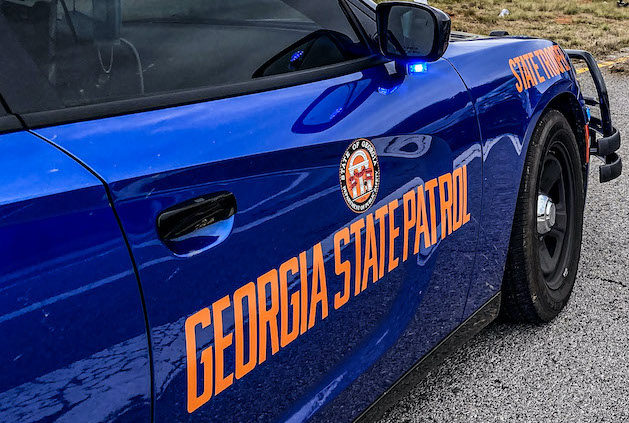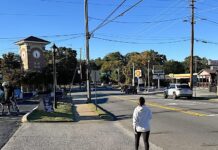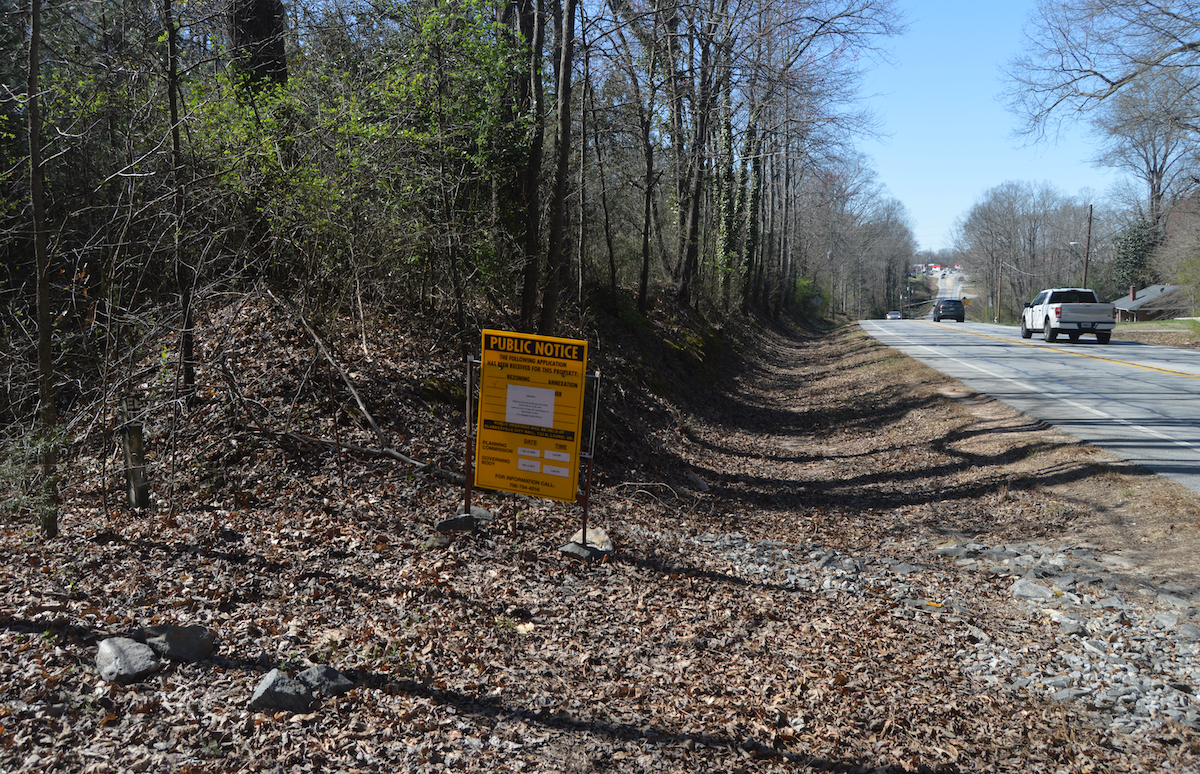
The Clarkesville City Council denied a variance request for an apartment complex on East Louise Street (Hwy. 17) that had been previously designated several years ago as a subdivision development, but construction never began.
Bowersox Investment Group of Canton, GA, submitted an application to the city in January for the development of the apartment complex named Ellison Park. According to the zoning requirements, the property was zoned as R-2 Multi-Family and had a max density of 10 units per acre.
Bowersox Investment Group requested the variance to increase the density from the required 10 units per acre to 12.36 units per acre. By ordinance, the 6.8-acre parcel would only allow 68 units, and the developer requested 84 units.
City Manager Keith Dickerson explained to the council that city staff had made some requests and recommendations to the developer. They had agreed to install a dog park, a walking trail, and have a brick facade on the buildings, and the developer complied with those requests in the preliminary design.
The reason for the variance request was due to a hardship based on construction costs.
However, the Planning and Zoning commission had denied the variance request to increase the density of the development, and the developer wanted to come before the council to appeal that denial.
Break even
Stephanie Joyce, a representative for the developer, spoke to the council about the variance request. “Variances usually come from a hardship, whether you’re hitting rock, have to redirect sewer lines. In this case, we are in unprecedented times, so I understand not wanting to set a precedent for writing a variance for our hardship, but whoever thought we would be here right now when it comes to building and development and construction.”
She continued, “We are not trying to be greedy in asking for the hardship. We are literally trying to break even for the first five years just so we can make the housing happen.”
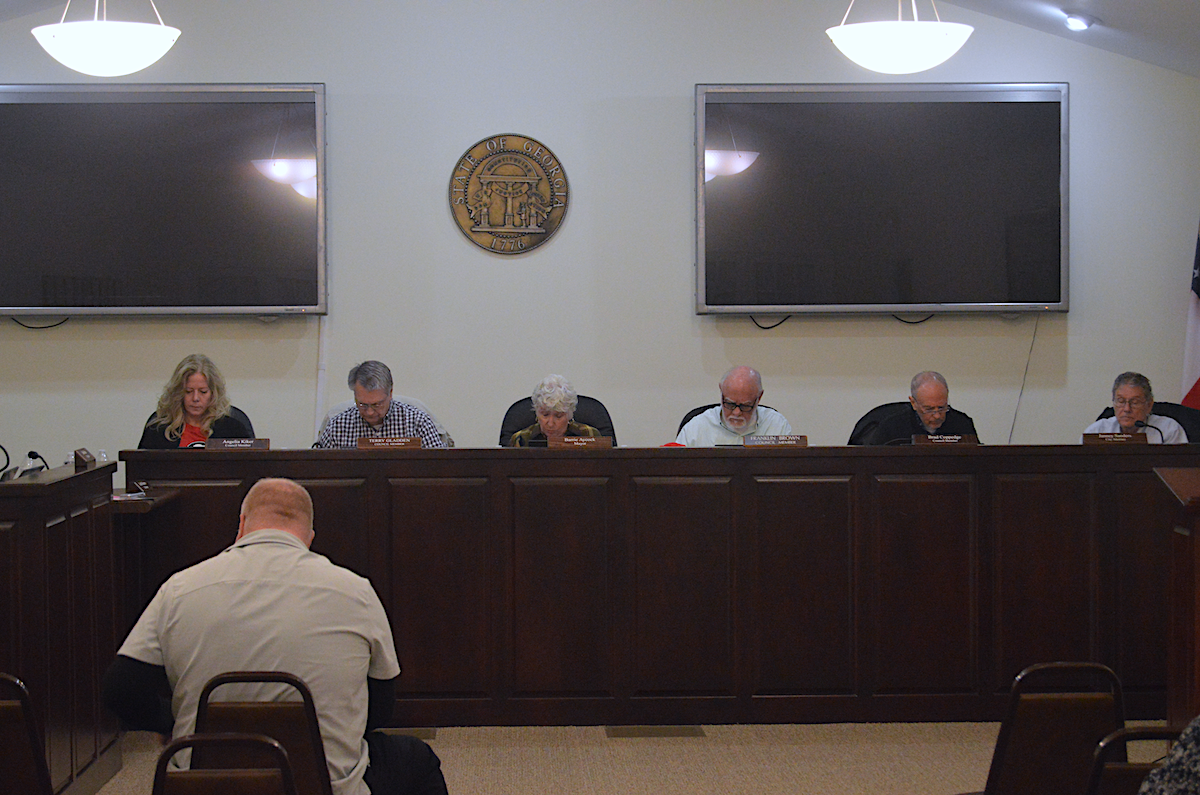
Councilmember Franklin Brown had a couple of concerns related to ingress and egress to the property. He inquired if they had done a traffic study related to the one entrance entering the highway. Joyce replied that they had been in contact with the Georgia Department of Transportation, and they had done the markup on the handout she had given them.
Brown also had a concern with having a second entrance related to ingress and egress for public safety vehicles responding to a fire. She stated that they could accommodate that concern in the next revision of the development plans.
Not ‘prudent’
The Planning and Zoning Commission advertised the variance request in January and only had one individual inquire about it. That individual did not live inside the city limits, officials said. The commission unanimously denied the variance request at its February meeting.
Clarkesville Zoning Administrator Caleb Gaines did not attend Monday night’s city council meeting but provided a brief to the council explaining their denial: “After discussion of the merits of the application with the representatives of Bowersox, the commission decided that a variance based on financial reasons does not meet the zoning ordinance’s requirements.”
“Clarkesville definitely needs more housing, but in the best interest of the guidance of zoning in regard to density, it would not be prudent to exceed the density requirements set forth in the ordinances,” Gaines said.
City councilmember Angelia Kiker upheld the Planning Commission’s recommendation.
“I have a little hard time going against the planning and zoning after they did that work,” she said. “These are unprecedented times, and we all are experiencing hardships with building costs and interest rates and all kinds of things. This is a self-imposed hardship. I have an issue with going against our planning and zoning to give a variance based on a hardship for a self-imposed hardship.”
She assured the developer that she was not against the development of the apartments but was not in favor of the variance.
The council voted 3-1 to deny the variance request, with Brown casting the only vote in favor of the request.
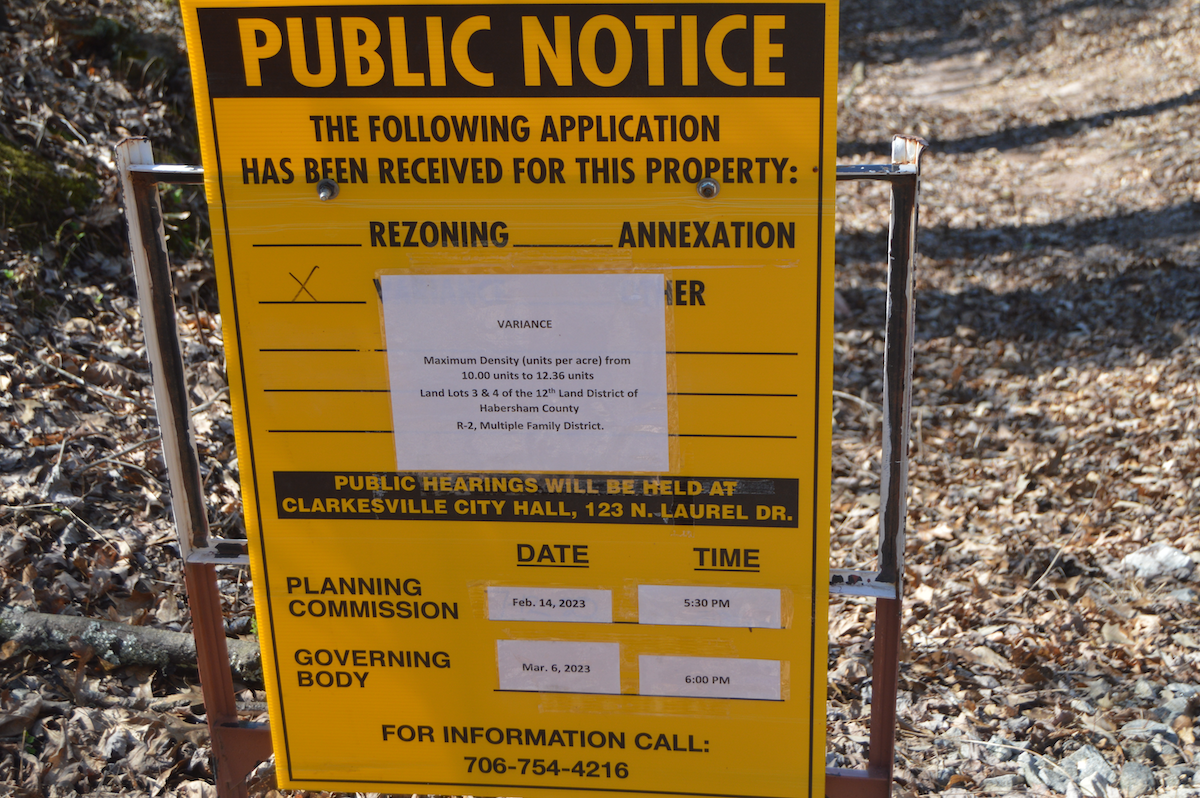
A ‘terrible precedent’
After the meeting, councilmember Brad Coppedge said he agreed with Kiker’s reasoning in denying the request. Approving it, he said, would have set a “terrible precedent.”
“It is fully explained that’s not part of the options to come forward asking for a variance based on a created hardship,” Coppedge said. “I felt tonight it was just one of those where it’s unfortunate that they have to hit a certain number to be able to, let’s say, break even in five years, but that’s their model. That’s what they wanted.”
The Planning and Zoning Commission’s recommendation also carried a lot of weight with Coppedge.
“They made a unanimous recommendation. That needs to be pointed out too,” he said.


